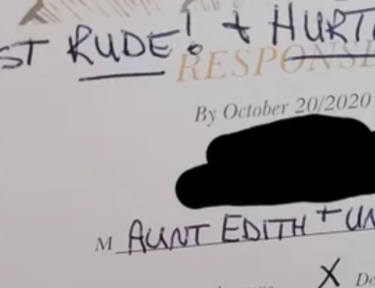Exclusive Handbag Designer Arrested For Designing Bags With Illegal Animal Skins
 Euronews Culture via YouTube
Euronews Culture via YouTubeLuxury handbag designer Nancy Teresa Gonzalez de Barberi, the founder of Gzuniga, has found herself in a legal battle following her involvement in smuggling purses crafted from protected reptiles.
Recently, she was sentenced to 18 months in prison for her role in this unlawful activity. Alongside her associate, Mauricio Giraldo, they were found guilty of illegally importing merchandise from Colombia to the United States, contravening wildlife protection laws.
The U.S. Department of Justice revealed that the handbags produced by Gzuniga utilized the skins of caimans and pythons, both species protected under the Convention on International Trade in Endangered Species of Wild Fauna and Flora (CITES). Despite the strict regulations surrounding the trade of these species, Gonzalez and Giraldo proceeded with their illegal operations.
Assistant Attorney General Todd Kim of the Justice Department’s Environment and Natural Resources Division emphasized the United States’ commitment to combatting wildlife trafficking, stating, “We will not tolerate illegal smuggling.”
The indictment charged Gzuniga, Gonzalez, Giraldo, and another co-conspirator, John Camilo Aguilar Jaramillo, with one count of conspiracy and two counts of smuggling. These charges stemmed from their illegal importation of designer handbags made from caiman and python skin from February 2016 to April 2019.
“The United States, in company with the international community, has established a system for overseeing the trafficking in protected species of wildlife. That system relies on a system of permits and oversight by many agencies and demands strict compliance by all those engaged in such trade,” said U.S. Attorney Markenzy Lapointe for the Southern District of Florida. “The press of business, production deadlines or other economic factors are not justification for anyone to knowingly flout the system and attempt to write their own exceptions to wildlife trafficking laws. In cooperation with our international partners, our Office will continue to require strict adherence to laws that protect our endangered species.”
The U.S. Fish and Wildlife Service (USFWS) also condemned the illegal wildlife trade, highlighting the importance of collaboration to disrupt such networks.
“The U.S. Fish and Wildlife Service is deeply committed to combatting wildlife trafficking in all its forms. The Gonzalez case underscores the importance of robust collaboration with federal and international partners to disrupt illegal wildlife trade networks,” said Assistant Director Edward Grace of the U.S. Fish and Wildlife Service’s (USFWS) Office of Law Enforcement. “This investigation uncovered a multi-year scheme that involved paid couriers smuggling undeclared handbags made of CITES-protected reptile skins into the U.S. to be sold for thousands of dollars. The Service will continue to seek justice for protected species exploited for profit, and we will hold accountable those who seek to circumvent international controls meant to regulate their sustainable trade.”
The case revealed a multi-year scheme involving paid couriers smuggling undeclared handbags made of CITES-protected reptile skins into the U.S. These handbags were then sold for exorbitant prices, contributing to the lucrative illegal wildlife trade.
As the investigation continues, authorities remain vigilant in their efforts to combat wildlife trafficking in all its forms. The outcome of this case serves as a stark reminder of the consequences faced by those who seek to profit from the exploitation of protected species.
In light of these developments, the global community must continue to work together to uphold wildlife protection laws and safeguard endangered species for future generations.
Hear more about the case in the video below.




